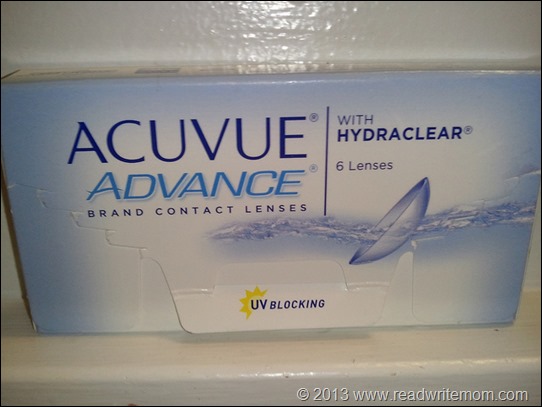I wrote this review while participating in an influencer campaign by Mom Central Consulting on behalf of HealthyWomen and VISTAKON® Division of Johnson & Johnson Vision Care, Inc. and received a promotional item from Mom Central to thank me for taking the time to participate.
It’s summertime, and while you make take extra precautions when it comes to protecting your skin from the sun, do you make sure you also do the same for your eyes? I know I normally don’t give it much thought. I do wear my sunglasses when I’m driving or at the pool, and my son also has a pair of children’s sunglasses he occasionally wears in the car if the sun is too bright, but we could definitely be doing more. In fact, research has shown that significant amount of lifetime exposure to UV rays may occur by age 18 and that children’s annual dose of radiation may be up to three times that of adults. Also, while direct sunlight can be extremely damaging to the eyes, reflected UV rays from water grass, and sand can be even worse. This made me really stop and think about how our family is protecting our eyes and how we can improve even more on this.
LISTEN UP CONTACT LENS WEARERS!
I’ve worn contact lenses since I was 12 years old. I was about to start junior high and vanity was the main reason I chose to switch to contacts. However, at age 13, a corneal ulcer almost took my eyesight and forced me back to wearing glasses for almost two years. Looking back, as a pre-teen, I know I wasn’t properly caring for my contacts as I should. Even as an adult, I am sometimes guilty of wearing a pair longer than I should. As a matter of fact, only 2% of contact lens wearers follow the rules for safe use.
Follow these tips for optimal contact wear:
- Stick to the time period recommended for your lenses. If they are two-week lenses, don’t try to stretch them out to a month, for example.
- Remember: contacts and water don’t mix. Never store your contacts in water or wear them while showering, using a hot tub, swimming or engaging in other water sports. Tap water contains impurities that can damage your lenses and may lead to severe eye infections, leading to partial vision loss or blindness.
- Before inserting a lens, take a good look at it to make sure it is moist, clean and intact. Don’t use a lens if the sterile package it comes in has been damaged or opened, or if the lens has a nick or tear.
- For those who wear makeup, apply your contact lenses first with clean, dry hands before applying makeup. Remove your contact lenses before removing eye makeup.
Contact Lens Care
Follow these tips for better contact lens care:
- Before handling your lenses, wash and rinse your hands thoroughly with a mild soap and dry them with a lint-free towel. Don’t use oily cosmetics or soaps containing lotion or cold cream before touching your lenses.
- Avoid using saline solution or rewetting drops to clean lenses; instead, use a disinfectant approved by your eye care professional.
- Do not use contact lenses or solution past their expiration dates.
- Never store contacts in anything other than approved solutions, and never reuse solution.
- Do not mix brands of contact solution.
- Replace your lens case at least every three months.
These are only a few of the many tips for proper wear and care of contacts to help you take the best care of your eyes, but they resonated with me the most. I can honestly say I never stop to check the expiration date of my contact lens solution. I’m also guilty of using a saline solution to clean my lenses when I should be using a disinfectant. Obviously, the passing of time (25 years) since I had such a terrible time with my eyes has made me forget that these things can’t be optional.
Most contacts do not protect against UV rays. I was curious if mine actually did, so I was relieved to find out that I am indeed getting that added benefit of protection with my current ACUVUE® contact lenses.
If you wear contacts, you should ask your eye care professional about a UV-blocking contact lens. ACUVUE® OASYS® Brand Contact Lenses, or for those who prefer a daily disposable contact lens, 1-DAY ACUVUE® TruEye® Contact Lenses, offer the highest level of UV-blocking available in a contact lens. Long-term clinical studies haven’t been done to show that UV-blocking contact lenses reduce the risk of eye disease or condition, so be sure to still wear them along with UV-blocking sunglasses and a wide-brimmed hat.
Please visit the HealthyWomen.org Eye Health Center for more great tips on protecting your eyes from the sun. These tips are for the whole family, and you just may be surprised at what you learn.


Leave a Reply